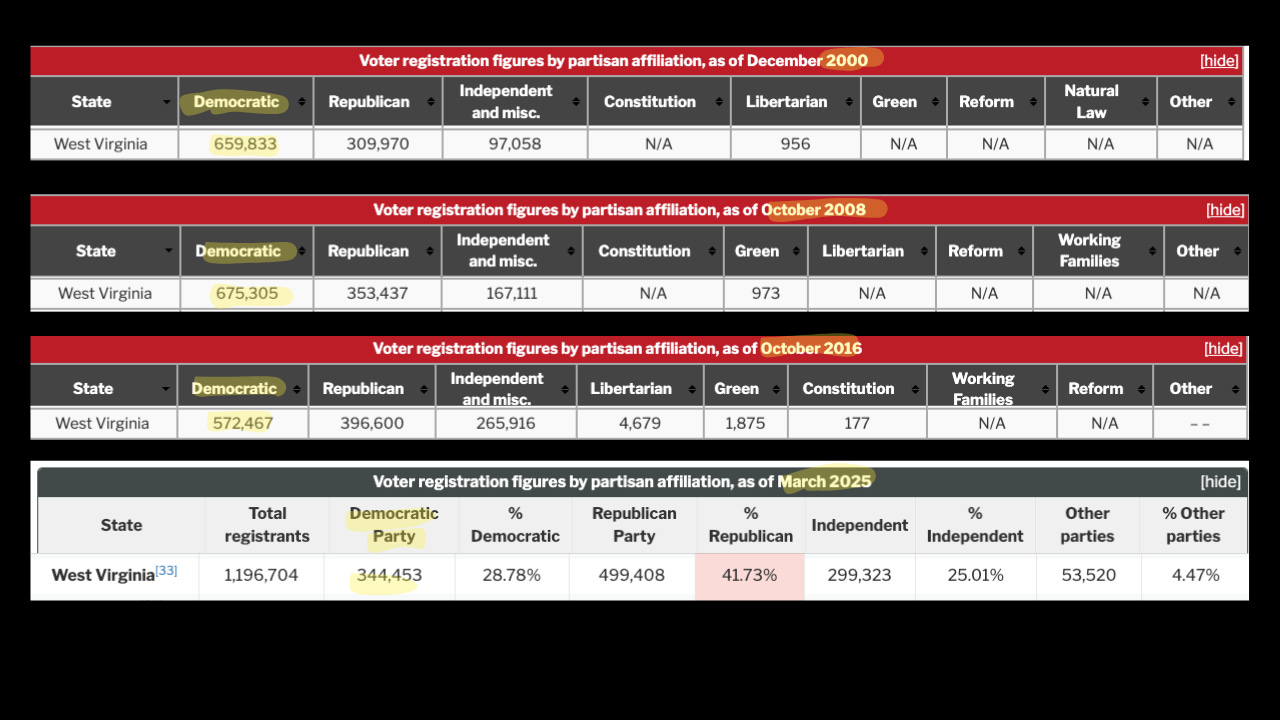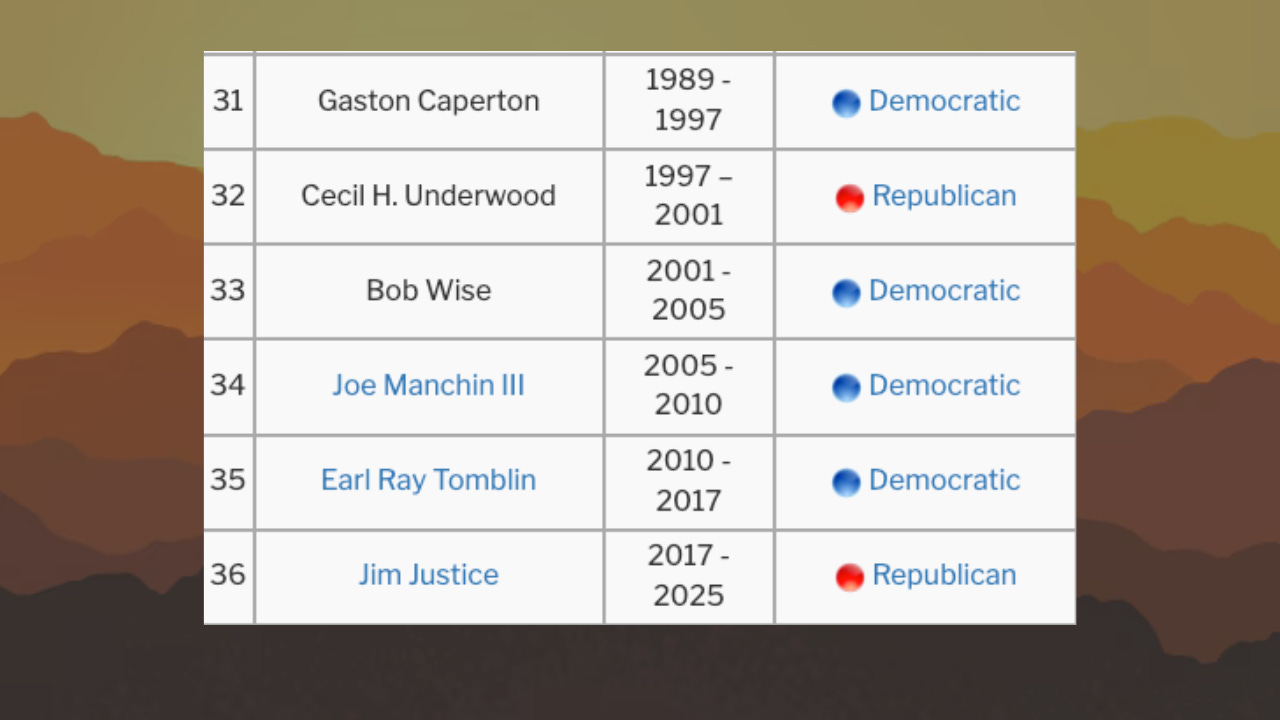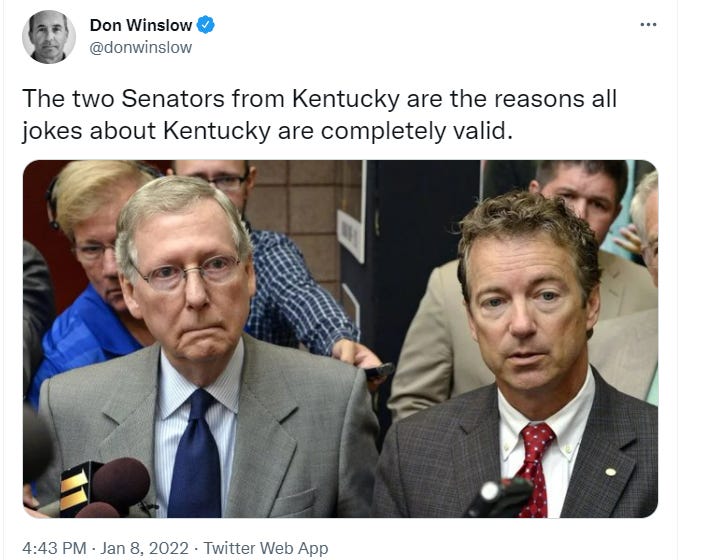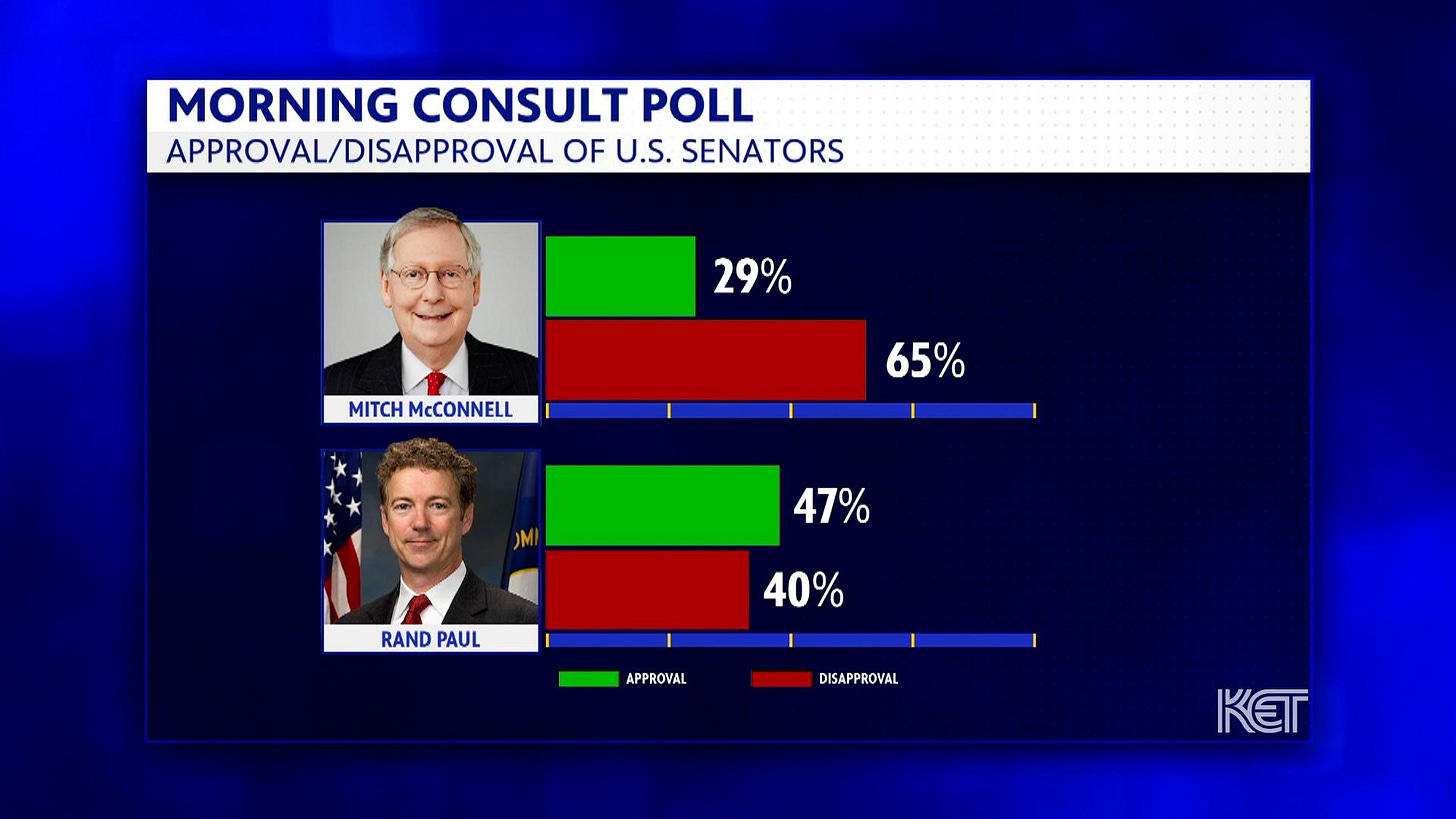Abolish red state-blue state labels
They're designed to cause division, and are the direct byproduct of the broken electoral college
Don’t think this is a problem? Hear me out…
I wrote about this awhile back. Now, a lot of people will balk at this idea — the concept of getting rid of the labels “red state” and “blue state.”
They’ll say, “Chuck, this is silly. In the big scheme of things, this doesn’t even really matter. It’s just a simplified way of viewing the electorate and the country.”
Well, lo…ho…ho…dear reader1, therein lies the problem.
This is creating more harmful division, and is preventing leftists and progressives from reaching people beyond the confines of their comfortable circles
See, over time, these labels have evolved from only describing the outcomes of presidential elections, to being the primary descriptors and sole point of knowledge about a state for many people. If a person has never been to a state and knows little about it, chances are if they know one thing, it’s “how they voted.”
For example, I meet many people who have never been to West Virginia (my home state),2 and the only thing they know about it is either “it’s a red state with lots of Republicans” or one of the litany of stereotypes about inbred hillbillies.3
These red and blue labels have solidified in peoples minds, and led them to form stereotypes and assumptions about them. It encouraged them to not exercise complex, critical thinking about the people in those places, but rather lump them into broad generalizations — associating everyone as either “red” or “blue.”
This is my Hoover Dam
I’m not trying to “cancel” or “woke scold” anyone for using the red-state blue-state labels — hell, I still catch myself using them from time-to-time — but, loving readers of No Elegy Needed, hear my plea.
If I can convince some people to ditch using these labels — even just a few — it will be my Hoover Dam.4
Now for some background
Places like Appalachia have been oversimplified and packaged into easy-to-consume sound bites that are then injected into the public conscience, oftentimes without us realizing it.
It’s very easy to make broad generalizations about a place when you’re constantly exposed to simple explanations about it. If your only knowledge about a state is what color it shows up as on an electoral map, there’s a good chance that may inform how you think about it.
West By God Virginia: A Case Study
In the aftermath of the 2016 election, I encountered many people who had never been to West Virginia and knew very little about it. What they did know was that it was a “red state”. And not only that, Trump won it by a bigger margin than any other state.
Yes. West Virginia is a very republican-voting state. Even if you discount efforts at voter suppression etc., it is still a very republican-voting state.
It wasn’t always so “red”
In 2008, the year I graduated from high school, John McCain won the state with 56% of the votes cast in the presidential election. Isolate this number and many people would say “Red state!”
But consider this….
In 2008, the same year McCain beat Obama by nearly 13 points in West Virginia:
80% of West Virginia’s congressional delegation were Democrats5
5 of the 6 statewide elected offices were held by Democrats6
Democrats controlled both legislative chambers (and in 2009, held supermajorities in both)
Now, obviously this was 17 years ago and a lot has changed in West Virginia and the country, but I cite this as an example that one election result — or one statistic in general for that matter — shouldn’t dictate anyone’s entire perception of a state.
For example, if you view West Virginia entirely from the prism of a “red state”, then you’re liable to miss the thousands of incredible people pushing for progressive change every single day.
Let’s go even further, just to beat the point to a pulp, with some Canva graphics



Elections ≠ the majority consensus: A Kentucky Case Study
Social media enables people to draw simple conclusions about things that are complex. Sometimes this is helpful, but many times it isn’t.
Kentucky has been the victim of this numerous times.
A more recent example of this was from a blue checkmark resistor on Twitter (yes, I know Twitter isn’t real life, but bear with me).
This is why I cringe every time I see a Don Winslow book for sale in the airport.
Don Winslow is essentially saying the following:
The senators from Kentucky are bad
A majority of Kentuckians voted for these senators.
The election results illustrate the views of all Kentuckians
Therefore, Kentuckians are deserving of scorn and ridicule.”7
Cocaine Mitch
Now, it goes without saying that no election is a true representation of an entire population. Mitch McConnell, for example, won re-election in 2020 by 57.8% of the vote to Amy McGrath’s 38.2%. Over 816,000 people voted for Amy McGrath, but in Don Winslow’s world, those 816,000 people are still a bunch of dumbasses I guess ¯\_(ツ)_/¯
This is, of course, despite Cocaine Mitch being one of the least popular (I think technically THE LEAST) senators in the country.
Abortion
Consider this from a Louisville Courier-Journal article about support for abortion:
65% of Kentuckians’ survey in 2019 supported women having access to abortion and other reproductive healthcare services.
Support for abortion in Kentucky is significantly higher than support for Mitch McConnell (who currently polls at around 41% approval)
So why isn’t Kentucky viewed by the public as a bastion of support for abortion?
Andy Beshear
Andy Beshear was, for a brief period of time last summer, seen as a potential VP pick for Kamala Harris.8 He is the third most popular governor in the country, with an approval rating of 65%, and won re-election in 2023 by a comfortable margin as a Democrat in Kentucky.
Yet, Kentucky still gets written off by too many people — most often, liberals in places where Republicans do not overwhelmingly control the levers of government — as a “red state” whose people are unworthy of their time, attention, concern, or empathy.
States are complex, and a county/state boundary is arbitrary.
Let’s stop using them as dividing lines because that’s what politicians and rich people want.
I say all this as a rambling way of building to a point: I think the labels “red” and “blue” force states into simplified boxes that go on to distort people’s viewpoints about them.
The “red state” of Califump
When people hear California, many think of it as a bastion of progressivism devoid of any Republicans whatsoever. That’s the narrative that wins the day on social media and in mainstream media. However, that ignores a significant portion of the state that votes differently.
In fact, you could take all the counties that Donald Trump won in 2024 — I’ve referred to them here as Califump — and create the 10th largest state in the country that voted for trump by a margin of +8.
I’m not saying that California isn’t going to solidly vote for Democrats statewide! Don’t get it twisted people! I posted something about this on Tiktok and Instagram, and people lost their goddam minds thinking that was the case.
I merely pointed this out to say that places like California are massive, yet people often just write it off as “BLUE STATE!” without considering that there are literally millions of Republicans (a lot more than voted for Trump in places like Kentucky, in fact!).
Settle down, here are two other examples to balance things out
My point is this: red state/blue state labels tell you exactly one thing about a place, how the majority of the people who chose to vote in the last presidential election voted. That’s it. It might be a decent barometer for how they’ll vote again, certainly.9 But it also forces an unfair perception on places like where I’m from, West Virginia. That perception that it’s a bad place because of how it votes, and it’s not worth the time or investment to change, or that all of its people are bad and irredeemable because of this.
I know these labels aren’t fully to blame for this, and some of that is on other people, but it’s genuinely kind of stupid that we generalize these massively complex places into one of two primary colors.
Hi, if you made it this far, may I borrow a few more seconds? Chances are you are hate reading this to get to the end so you can leave a nasty comment. But! By the off chance you actually enjoy reading my snarky, profanity-laden commentary, perhaps you’ll consider becoming a paid subscriber? It is never expected but always appreciated. It helps me continue providing a perspective that, I think, is rare but important for Appalachia. It also helps me reach a wider audience.
Thank you! -Chuck
Another classic Brad Neely Wizard People reference.
Sorry, I’m Malcolm Gladwell’ing this a bit.
Thanks, Wrong Turn
I believe the delightfully admirable though unrealistic Leslie Knope used this to describe the pit she so desperately planned to fill in the show Parks & Recreation
WV-01: Alan Mollohan (D)
WV-02: Shelley Moore Capito (R)
WV-03: Nick Rahall (D)
Sen. Robert C. Byrd (D)
Sen. Jay Rockefeller (D)
Governor: Earl Ray Tomblin (D)
Secretary of State: Betty Ireland (R)
Attorney General: Darrell McGraw (D)
State Auditor: Glen Gainer (D)
State Treasurer: David Perdue (D)
State Ag Commissioner: Gus Douglass (D)
I very much acknowledge Twitter is where nuance goes to die.
Lol, remember those days? Good times, back before that campaign was blown, and we ended up where we are now….sigh.
Believe me, I’m under no delusions that a place like Alabama isn’t going to consistently vote statewide for Republicans for a VERY long time















Although I agree with the sentiment and goal of the author's thesis, I have two questions:
1. Does the red-blue label cause division? Or does it just represent existing division?
2. How does one abolish this? However unfortunate, these labels capture an existing divide in this country.
As a tribal species, we seem to be incapable of not fracturing into divisions of us and them. Threats -- real or created -- serve to exacerbate tribal behavior. Perhaps instead of trying to abolish the red state-blue state label, we might be more successful if the liberals of Morgantown sat down over beer and pizza with the conservatives of Mingo County. Reductive labels tend to lose their significance when one is confronted with a living, breathing human.
Such siloed lives we lead.
Agree with this so hard. Especially since last year's election, I keep telling people that the red state/blue state binary is far too reductive, citing things like Pikeville (KY) Pride's almost 3000-person attendance last year, in addition to Gov Beshear's popularity in the state. No state is a monolith! Gerrymandering (in both directions, to be fair) has ruined the democratic process in most states, leaving good people unable to make much electoral change.